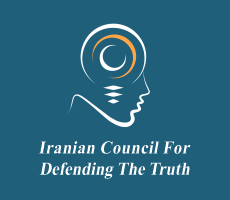Iran and Azerbaijan have overcome the recent uncertainty in their relations from late last year and are thus poised to have very promising ties all throughout 2022 if the latest trends remain on track. President Ebrahim Raisi’s meeting with his Azerbaijani counterpart during the Economic Cooperation Organization’s (ECO) summit in Turkmenistan’s capital of Ashgabat at the end of November showed that both leaders had will to work out their misunderstandings for the benefit of their fraternal people.1
Their governments also agreed at the time to have Iran swap Turkmenistan’s gas with Azerbaijan, which took effect at the beginning of this year. This pact pragmatically contributes to their shared goal of comprehensively strengthening integration among that bloc’s members. It also complements the Iranian Supreme Leader’s vision of expanding his country’s ties with its eastern neighbors. From the Azerbaijani perspective, it could eventually lead to it re-exporting more of Turkmenistan’s gas further westward. 2
This agreement was followed up by Iranian Foreign Minister Abdollahian’s trip to Baku approximately a month later in late December.3 That showed the region that his country and Azerbaijan had indeed resolved their prior misunderstandings with one another. They promised to further expand bilateral cooperation, especially in the economic dimension. The Iranian diplomat also reaffirmed his country’s willingness to contribute to liberated Karabakh’s reconstruction, which was appreciated by Baku.4
Foreign Minister Abdollahian’s trip coincided with the announcement that Iran 5, Azerbaijan, and Georgia will pioneer a new trade corridor (IRAZGE) between them for linking the Black Sea and the Persian Gulf. This will greatly improve the Iranian economy’s regional competitiveness by opening up easier access to the European marketplace, especially if the nuclear deal is successfully renegotiated and the US’ illegal secondary sanctions threat is no longer a factor deterring the EU from trading with the Islamic Republic.
The final development of significance was announced at the start of the year when Iranian Deputy Energy Minister for International Affairs revealed that the project for synchronizing the electricity networks of Iran and Russia via Azerbaijan will begin in April. Energy cooperation is extremely strategic, which speaks to the positive trilateral working relations between Iran, Azerbaijan, and Russia, all of whom also cooperate on the North-South Transport Corridor (NSTC) with their shared Indian partner.6
These moves show that the future remains bright for Iranian-Azerbaijani relations. Third parties failed to drive a wedge between them. The uncertainty from late last year has evaporated and these two fraternal countries naturally returned to their trust-based ties with the other. Their leaders wisely realized how much their people have to gain through closer intergovernmental cooperation. Not only is this mutually beneficial, but it also contributes to regional stability too.
It’s impossible for the South Caucasus to emerge as one of Eurasia’s most pivotal connectivity nodes in the 21st century without Iranian-Azerbaijani cooperation to this end. These two countries are key regional stakeholders and can play influential roles in the proposed 3+3 format between the three South Caucasus states of Azerbaijan, Georgia, and Armenia and their three Great Power neighbors of Iran, Russia, and Turkey. Political uncertainty harms both of their interests as well as the broader region’s.
Observers can learn a lot from the rapid improvement of Iranian-Azerbaijani ties over the past few months. First, third parties’ divide-and-rule plots will always fail so long as the two targeted countries’ leaders are keenly aware of them like Iran’s and Azerbaijan’s were. Second, ties between fraternal people cannot be weakened through external meddling if they’re as strong as those two countries’ are. Third, effective diplomacy can successfully thwart foreign plots as was evidenced by both late last year.
Fourth, the search for common ground during times of occasional differences coupled with an understanding of the mutual benefits inherent in focusing on what brings fraternal people together instead of divides them is integral to resolving any misunderstandings, which is exactly the path that Iran and Azerbaijan followed. And finally, the comprehensive convergence of strategic interests between transregional pivot states like Iran and Azerbaijan benefits everyone in their broader regions.
1-- https://azertag.az/en/xeber/President_Ilham_Aliyev_met_with_Iranian_President_Seyyed_Ebrahim_Raisi_VIDEO-1937576 2-- https://www.tehrantimes.com/news/468651/Iran-begins-swapping-Turkmenistan-s-gas-to-Azerbaijan 3-- https://www.azernews.az/nation/187223.html 4-- https://www.tasnimnews.com/en/news/2021/12/23/2631094/fm-iran-ready-to-assist-in-reconstruction-of-azerbaijan-s-liberated-areas 5-- https://www.azernews.az/business/187248.html 6-- https://www.tehrantimes.com/news/468690/Synchronization-of-Iran-Russia-electricity-networks-to-begin

